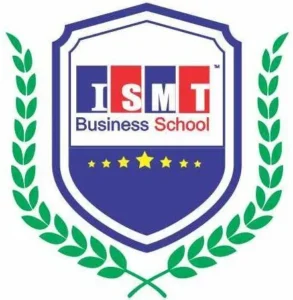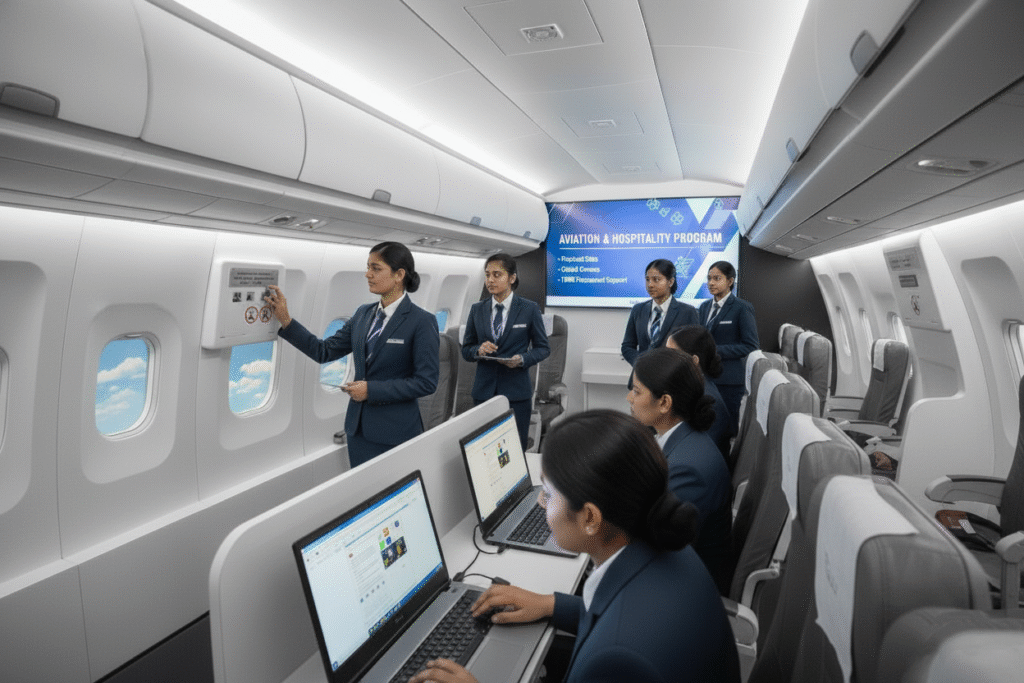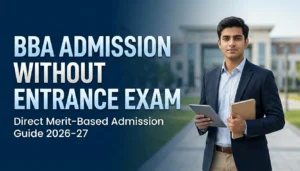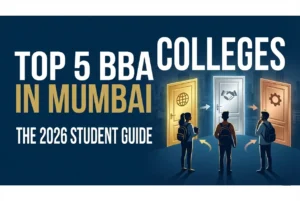Just Imagine this: You’re at 35,000 feet, traveling to a new city every week, meeting fascinating people from across the globe, and getting paid well for it. Sounds like a dream? That’s exactly what thousands of aviation professionals experience daily.
India’s aviation sector is booming. New airports are opening, airlines are expanding their fleets, and there’s a massive shortage of trained professionals. Airlines are practically hunting for qualified cabin crew, ground staff, and hospitality experts. But here’s the catch—they only hire people with proper training and the right certifications.
That’s where aviation qualification courses come in. These aren’t your typical college degrees that take forever and cost a fortune. We’re talking about focused, practical programs that get you job-ready in months, not years.
Let’s break down what makes these courses worth your time and how ISMT Business School’s Aviation & Hospitality program stands out from the crowd.
What Exactly Are Aviation Qualification Courses?
Think of these as your fast-track entry into the aviation world. Unlike regular college programs that focus heavily on theory, aviation courses teach you exactly what airlines and airports need—customer service skills, safety procedures, grooming standards, and how to handle real-world situations.
Most aviation qualification courses run anywhere from 6 months to 3 years, depending on how deep you want to go. The shorter diploma courses get you job-ready quickly for roles like cabin crew or ground staff. Longer degree programs, like the one at ISMT, give you a broader business foundation plus specialized aviation training—which opens doors to management positions down the line.
Here’s what typically gets covered:
- How airlines and airports actually operate (not just theory)
- Customer service that goes beyond “smile and be nice”
- Safety protocols and emergency procedures (the stuff that saves lives)
- Professional grooming and personality development (because first impressions matter)
- Communication skills that work across cultures and languages
- Technology systems airlines use for ticketing and operations
The best part? You start practicing from day one. Cabin mockups, airport terminal simulations, actual reservation systems—you learn by doing, not just reading textbooks.
Why Aviation & Hospitality Is Actually a Smart Career Move Right Now
Let’s talk real benefits, not just the glamorous stuff you see in Instagram posts.
The Numbers Don’t Lie
India needs 30,000-40,000 new aviation professionals every year through 2030. That’s not a maybe—that’s industry data. New routes are launching, regional airports are expanding, and airlines can’t find enough trained people fast enough.
Starting salaries aren’t bad either. Cabin crew positions typically offer ₹3-5 lakhs annually for freshers with domestic carriers. International airlines? Even better, often ₹6-8 lakhs plus overseas allowances. Ground staff start around ₹2.5-4 lakhs, but here’s the thing—you climb fast if you’re good. Within 3-4 years, senior positions paying ₹6-10 lakhs become achievable.
You Actually Travel (For Real)
This isn’t just marketing fluff. Cabin crew literally fly to different cities multiple times a week. Even ground staff at major airports interact with destinations worldwide daily. Plus, most airlines offer massive flight discounts to employees and their families. Weekend in Goa? Bangkok trip? Suddenly very affordable.
Skills That Transfer Everywhere
Say you start as cabin crew but later decide it’s not for you. The skills you’ve built—communication, problem-solving under pressure, service excellence, handling difficult people gracefully—these work everywhere. Many aviation professionals transition into corporate training, event management, hospitality operations, or sales roles. The foundation is solid regardless of where you eventually land.
It’s Not Boring
Every flight brings different passengers. Every day at the airport presents new situations. One day you’re helping a nervous first-time flyer, the next you’re coordinating during a weather delay. If you’re someone who gets bored easily with routine desk jobs, aviation keeps things interesting.
What Makes ISMT’s Aviation & Hospitality Program Different
Mumbai has dozens of aviation institutes. So why consider ISMT Business School specifically? Here’s the honest breakdown.
It’s a Full Degree, Not Just a Certificate
ISMT offers a 3-year undergraduate program in Aviation & Hospitality. That matters because while 6-month certificate courses get you entry-level jobs, a degree opens management paths later. You’re not just learning to be cabin crew—you’re learning business fundamentals, management principles, and specialized skills. Five years from now, when you’re ready to move into supervisory or management roles, that degree makes a difference.
The program runs across 6 semesters covering everything from basic business principles and accounting to specialized aviation operations and hospitality management. You’re building a complete professional foundation, not just job-specific skills.
The Value-Adds Actually Add Value
Most institutes claim extras, but ISMT delivers tangible benefits:
You get a laptop to use throughout the program. Not “access to computer labs”—an actual laptop for your coursework.
Complete business attire provided—blazer, shirt, trouser, tie. Walk into airline interviews looking the part from day one.
Advanced Excel certification included. Airlines use data constantly—for scheduling, revenue management, operations. Excel skills aren’t just nice to have; they’re necessary.
Free communication and interview skills course. Aviation recruitment is notoriously tough with multiple interview rounds and group assessments. This prep gives you an edge.
Optional international study tour to Singapore or Malaysia. See how world-class aviation operations actually work, not just read about them.
These aren’t marketing gimmicks. Talk to actual students—these additions make a real difference in placement success.
100% Placement Assistance That’s Actually Hands-On
“Placement assistance” usually means “we’ll post some job openings in a WhatsApp group.” ISMT does more:
Airlines conduct campus recruitment drives—meaning they come to you for interviews, not the other way around. Ground handling companies, airport service providers, hospitality organizations—they actively recruit from ISMT’s graduating batches.
The placement team preps you specifically for aviation interviews, which are different from regular corporate interviews. Mock group discussions, personality assessments, grooming checks—all the stuff airlines actually test for in their selection processes.
They don’t stop at graduation either. Placement support continues until you land something suitable. That persistence matters when you’re competing with hundreds of other candidates for the same positions.
Pick Your Additional Specialization
Aviation interests you, but maybe you’re also curious about digital marketing. Or you’re considering government exams as a backup. ISMT lets you add one specialized training area:
- Banking/SSC/Railway exam preparation
- MBA entrance coaching
- Digital marketing certification
- Data analysis training
- Banking & finance certificate
- HR management certificate
This flexibility is smart. You’re building aviation expertise while keeping other career doors open. Not every aviation student stays in aviation forever, and having adjacent skills creates options.
The Real Career Paths (Beyond Just Cabin Crew)
When people think aviation careers, cabin crew comes to mind first. But the industry offers much more variety.
Cabin Crew (The Classic Path)
Yes, it’s challenging. Irregular hours, dealing with difficult passengers, jet lag, being away from family. But for the right person, it’s incredibly rewarding. You’re essentially traveling the world while earning. International cabin crew positions with Middle Eastern carriers offer particularly attractive packages—better salaries, tax-free income, accommodation provided, and extensive route networks.
Career progression goes: Junior Cabin Crew → Senior Cabin Crew → Purser → Cabin Service Manager → Training roles or Inflight Service Management. Takes 5-8 years typically to reach senior positions.
Ground Staff Operations
Prefer staying grounded? Airport operations roles are massive. Check-in agents, boarding coordinators, customer service representatives, baggage services—every flight needs substantial ground support.
The advantage here is more regular hours and location stability. You’re not flying out for days at a time. Many ground staff progress into supervisory roles, then operations coordination, and eventually airport management positions. Airports operate 24/7, so shift work is still part of life, but it’s more predictable than cabin crew schedules.
Airport Hospitality & Lounge Services
Premium passengers expect premium experiences. Airport lounges, VIP services, inflight catering management—these roles blend aviation knowledge with hospitality excellence.
If you genuinely enjoy creating exceptional service experiences and have that hospitality mindset, these positions offer satisfying careers. Compensation is competitive, especially in management roles, and the work environment is generally less hectic than frontline operations.
Aviation Management (The Long Game)
With a full degree and some years of experience, management opportunities open up. Airport operations management, airline commercial operations, training and development roles, customer experience management—these positions combine business strategy with aviation specialization.
Starting out, you’ll likely begin in operational roles. But having that degree foundation from programs like ISMT’s means you’re positioned for management track early in your career. By year 5-7, while peers from certificate courses are still in individual contributor roles, degree holders are often moving into team leadership.
Choosing the Right Program: What Actually Matters
Not all hospitality schools for aviation deliver equal results. Before enrolling anywhere, check these things:
Ask about actual placement numbers. Not “we provide placement assistance”—actual percentages. How many graduates from last year’s batch got placed within 6 months? In what types of companies? At what salary ranges? Vague answers are red flags.
Visit the campus and facilities. Do they have cabin mockups for training? Actual airline systems for practice? Or just regular classrooms with PowerPoint presentations? Hands-on infrastructure matters enormously for aviation training.
Talk to current students and recent graduates if possible. Their honest experiences reveal more than any brochure. Are faculty members accessible? Does the placement cell actively help? Are promises actually kept?
Check instructor backgrounds. Are they former aviation professionals with real industry experience? Or academic instructors who’ve never actually worked in aviation? You want to learn from people who’ve done the job, not just studied it.
Understand total costs upfront. Tuition, materials, exam fees, any hidden charges—get everything in writing. Compare total investment against program duration and expected outcomes.
Ready to Start Your Aviation Journey?
If you’re someone who lights up at the thought of travel, enjoys working with people, and wants a career that’s anything but boring, aviation deserves serious consideration. The industry growth is real, opportunities are abundant, and proper training makes all the difference.
ISMT Business School’s Aviation & Hospitality program offers comprehensive preparation—not just quick training, but a full degree that sets you up for long-term success. Located in Borivali West, Mumbai, the campus is easily accessible and equipped with modern facilities supporting effective learning.
The program starts students from 12th pass, covers everything needed for aviation and hospitality careers, and includes those valuable extras that genuinely improve your job prospects. Most importantly, ISMT’s placement support doesn’t just end at graduation—it continues until you’re successfully placed.
Want to learn more or visit the campus?
Website: ismtindia.com/aviation-hospitality
Call: 9930526101 / 8976055540
Email: info@ismtindia.com
Address: ISMT, 6th Floor, Sai Lee International, Old MHB Colony, Near Don Bosco Signal, Gorai Road, Borivali West, Mumbai, Maharashtra 400092
Talk to their admission counselors. Ask tough questions. Visit the facilities. See if it feels right for you.
Your aviation career won’t wait forever. Airlines are hiring now. Seats in quality programs fill up fast. The question isn’t whether aviation is a good career—it demonstrably is. The question is whether you’re ready to commit to proper training and make it happen.
The runway is clear. Time to take off.
Quick Reality Check: Aviation careers aren’t for everyone. Irregular hours, time away from family, strict grooming standards, dealing with demanding customers—these are real challenges. But if you’re naturally service-oriented, adaptable, and genuinely excited about the lifestyle, few industries offer comparable opportunities for travel, growth, and dynamic work. Choose wisely, train properly, and the sky literally becomes your workplace.





